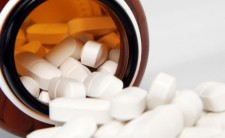 The Food and Drug Administration has begun looking more closely at the way generic companies make extended-release drugs.
The Food and Drug Administration has begun looking more closely at the way generic companies make extended-release drugs. The Food and Drug Administration has begun looking more closely at the way generic companies make extended-release drugs. Although the FDA has consistently insisted that generic drugs are just as effective as their brand-name counterparts, this recent examination into generic extended-release drugs is related to the failure of one such medicine to work as well as its brand-named version.
The Food and Drug Administration has begun looking more closely at the way generic companies make extended-release drugs. Although the FDA has consistently insisted that generic drugs are just as effective as their brand-name counterparts, this recent examination into generic extended-release drugs is related to the failure of one such medicine to work as well as its brand-named version.
The drug, a 300-mg dose of bupropion, was intended to mimic a widely used antidepressant, Glaxo s Wellbutrin XL. But not too long after its introduction in 2006, patients who switched to the generic began complaining that their depression had returned. Impax and Teva Pharmaceuticals marketers of the generic have since stopped selling the 300-mg dose.
This has actually prompted us to change our policy, said Dr. Gregory P. Geba, director of the FDA s office of generic drugs. The agency is now looking more closely at the techniques generic drug makers use to make extended-release drugs.
It is sometimes quite difficult to produce generic copies of extended-release drugs that are sufficiently equivalent in their rates of dissolution and drug release to the branded product, says ACSH s Dr. Josh Bloom. The methods for gradually releasing drugs in a controlled and predictable manner are a separate technology unto themselves, and can be very tricky. This is especially problematic in the case of bupropion. The maximum daily dose is 450 mg 150 mg three times daily when the non-extended version is used. But if 450 mg of bupropion is taken at once (as would be the case when the generic extended release pill is defective) it becomes rather dangerous and can induce seizures. This is one downside to generic drugs that few people are aware of.


